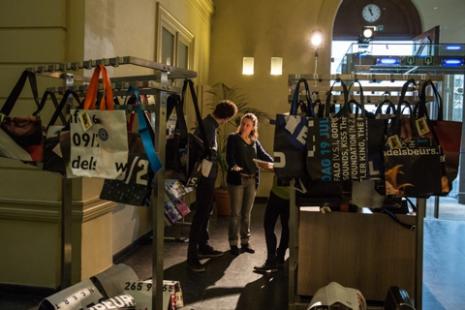Back to list
Glasgow International Jazz Festival
Glasgow Jazz Festival was founded in 1987, presenting international and homegrown talent on a variety of indoor and outdoor stages across Glasgow.
The festival is run by a small team who share responsibility for making the festival more environmentally sustainable. The small size of the team sometimes sets limits on the amount of action that can be taken, as team members must juggle environmental sustainability among other responsibilities and priorities.
Key actions taken include:
http://www.jazzfest.co.uk/
The festival is run by a small team who share responsibility for making the festival more environmentally sustainable. The small size of the team sometimes sets limits on the amount of action that can be taken, as team members must juggle environmental sustainability among other responsibilities and priorities.
Key actions taken include:
- Reducing waste through re-using and recycling materials where practical.
- Only printing documents and correspondence where absolutely necessary.
- Working to ensure that only an appropriate amount of printed marketing material is manufactured (this includes trying to understand how many programmes are actually needed).
- Operating a switch-off routine in the office at the end of the day for PCs, lights, printers, and non-essential electrical equipment.
- Encouraging people to book tickets online to reduce travel and postage impacts.
- Many of the venues and hotels that the festival uses are within a few minutes walking distance of each other, reducing the requirement of ground transport for artists or audience members. The festival has also trialled getting artist liaison to physically walk artists from hotels to venues (where equipment permits).
- Encouraging artists and audiences to use public transport.
- The festival uses a local PA company, crew and staff, minimising impacts of transportation and travel – and because the festival is part-funded by the local authority, ensuring that the economic benefits of the event are fed back into the local community.
- The festival also uses suppliers with similar environmental aims and purchases environmentally responsible products where possible.
- For example, one festival pop-up venue required a toilet installation, so the team found a model that integrates the sink and cistern (so that water is recycled from hand-washing into the cistern for flushing). This claims to use up to 70% less water than an ordinary WC.
- One of the current green aims is to use vehicle hire companies specialising in low-emission and hybrid vehicles.
- The festival has a partnership with a local homeless shelter – the Wayside Club in Glasgow - to donate unused food and soft drinks from the artist Green Room.
- Future plans include focusing on paperless tickets, trying to eliminate stage bottled water wastage, and establishing a partnership with the local public transport provider.
http://www.jazzfest.co.uk/









